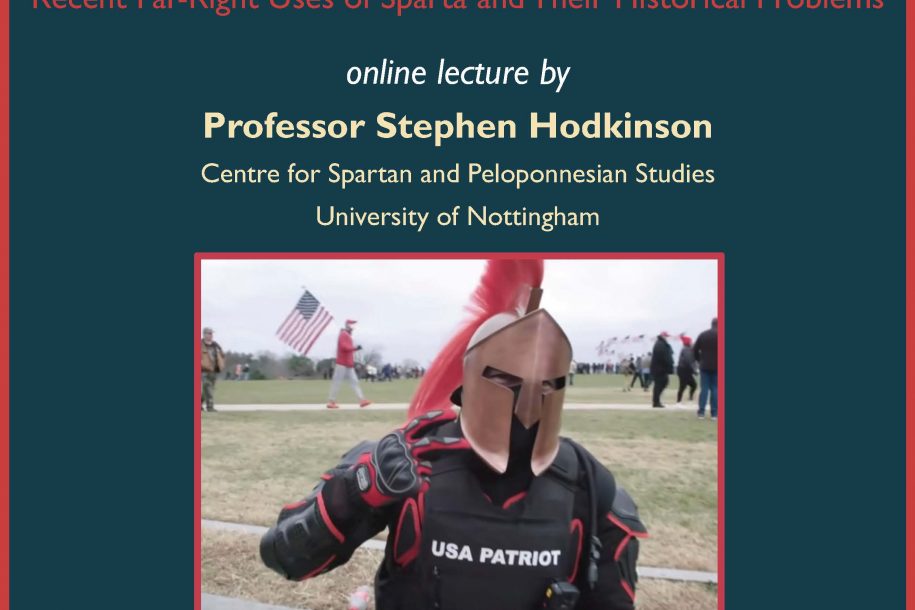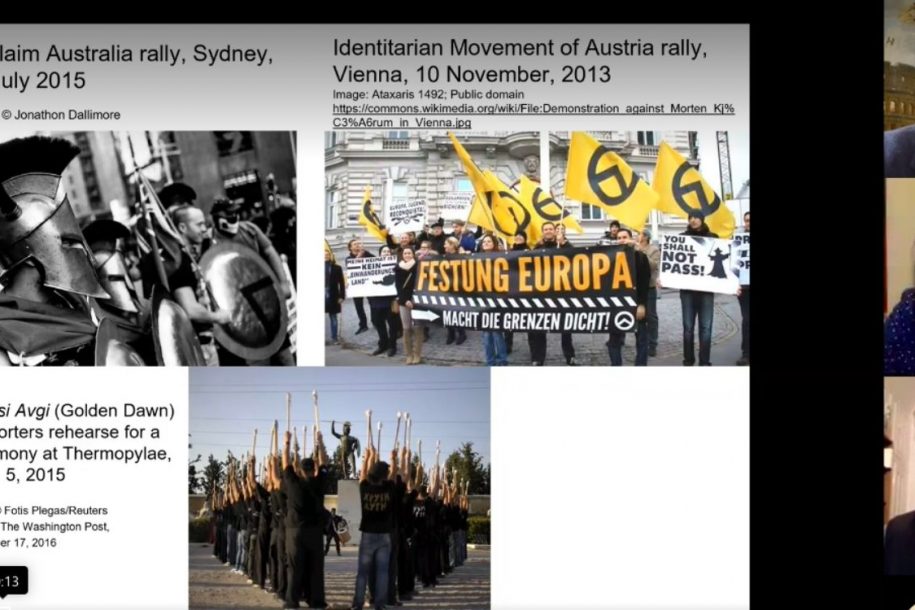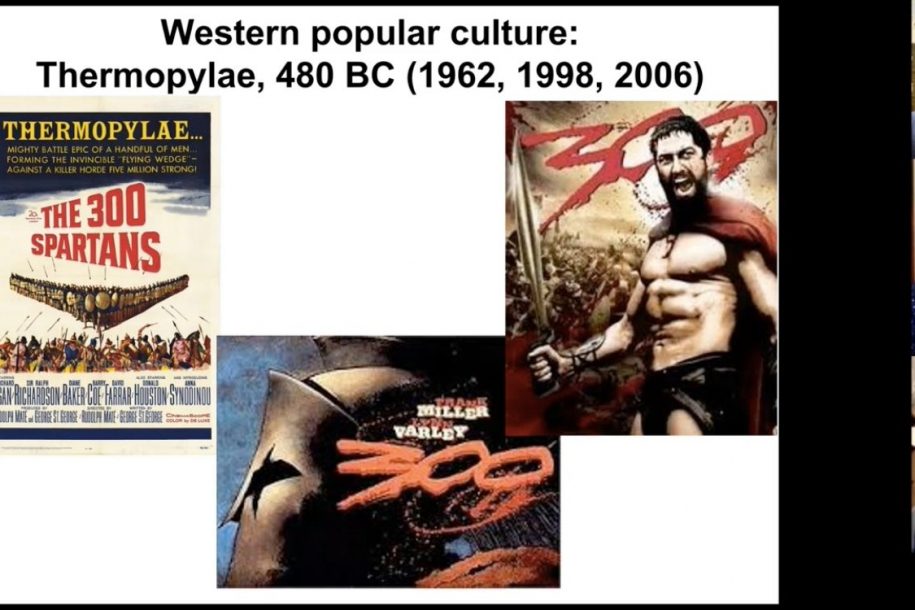Professor Stephen Hodkinson – Autumn Lecture

On the 17th November, Professor Stephen Hodkinson, Emeritus Professor of Ancient History at the University of Nottingham, as well as founder and director of its Centre for Spartan and Peloponnesian Studies in the Ancient World, up until his recent retirement, as well as this in 2010 he was awarded Honorary Citizenship of the city of Sparta, Greece, for his contributions to the global dissemination of Spartan history. He talked on ‘Spartans on the Capitol: recent Far-Right uses of Sparta and their historical problems.’ Showing the links between the Ancient World and events in politics today. For instance, in the insurrection at the Capitol in Washington on January 6th 2021.
To begin with, Professor Hodkinson talked about the development of Spartans in the media in recent history, talking about how Third Reich took inspiration from the Spartans, in the world wanted to create, to the Spartans, specifically the Thermopylae becoming a main theme in the media in the late 1900s, into the 2010s with far-right political rallies dawning spartan ideas, such as the Lambda, short for Lacedaemon, which was used on their shields as well as the renowned phrase ‘molon labe’, ‘come and take them’, as well as many others including spartan links to the 2016 presidential election and other aspects of society. Demonstrating the appropriation of Sparta in the United States.

He then went onto explain the origins of these thoughts, going back to the founding fathers, and the French Revolution to the rise of British liberalism and how in the Rise of Nazism in the 1930s, how the British thought of themselves as the Athenians, and Germany, Spartans. This then led to the Cold War where Sparta was used to compare itself to the Soviet Union. Therefore, ingraining the thought that Sparta was a militarised society.

Finally, we looked at the myths that these ideas have created. Where, the Spartans didn’t fight to the death in the Thermopylae, for instance in the surrendering on Sphakteria island, 425BC. In addition to this the Spartan’s weren’t professional soldiers as they weren’t paid or fed by the state, meaning they weren’t soldiers in any modern sense, but their life wasn’t dominated by military training, meaning they weren’t professional soldiers in any sense. Furthermore, the Spartiates weren’t armed in everyday life, however, they did indeed own their own weapons, used for training. He then went on to say that soldiering was not the most important aspect to Spartan life, contrary to what is believed.
To conclude, we learnt that Sparta’s society was very different from our own perception, which is an image of a militaristic culture, focused on war, therefore, expropriating it by the Far Right seem completely inappropriate.
Noah Prydal
